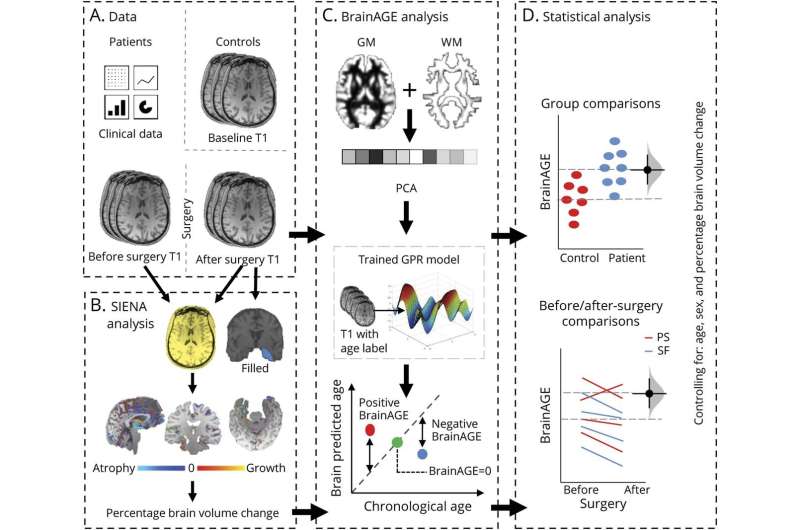Epilepsy surgery may improve overall brain health

Epilepsy surgery may be associated with improvements to overall brain health, a study led by University of Liverpool researchers has found.
The study, published in Neurology, the medical journal of the American Academy of Neurology, used advanced magnetic resonance imaging (MRI) techniques to inform its findings.
Corresponding author Dr. Christophe de Bezenac said: "Many clinicians remain hesitant in referring patients with refractory temporal lobe epilepsy (TLE) for surgery despite the known safety and efficacy. Here we provide imaging evidence to suggest that it may improve overall brain health."
To determine whether surgery in patients with mesial temporal lobe epilepsy (mTLE) is associated with reduced brain-predicted age as a neural marker overall brain health, the researchers compared brain-predicted and chronological age difference in patients before and after surgery to healthy controls.
Christophe de Bezenac said: "MRI analysis of brain-predicted and chronological age difference (BrainAGE) is thought to provide a surrogate marker of overall brain health. We have shown that BrainAGE is greater in patients with refractory TLE by at least seven years compared to healthy controls and that this difference is reduced after epilepsy surgery. Our findings are in line with other work suggesting that earlier surgery may benefit patients with refractory TLE."
The researchers involved in this study are part of The Liverpool BRAIN (Brain Research Advanced Imaging Network), a clinically-oriented neuroimaging research group specializing in the application of advanced magnetic resonance imaging (MRI) techniques to understand brain impairment in neurological disorders.
More information: Christophe E. de Bézenac et al, Association of Epilepsy Surgery With Changes in Imaging-Defined Brain Age, Neurology (2021). DOI: 10.1212/WNL.0000000000012289


















